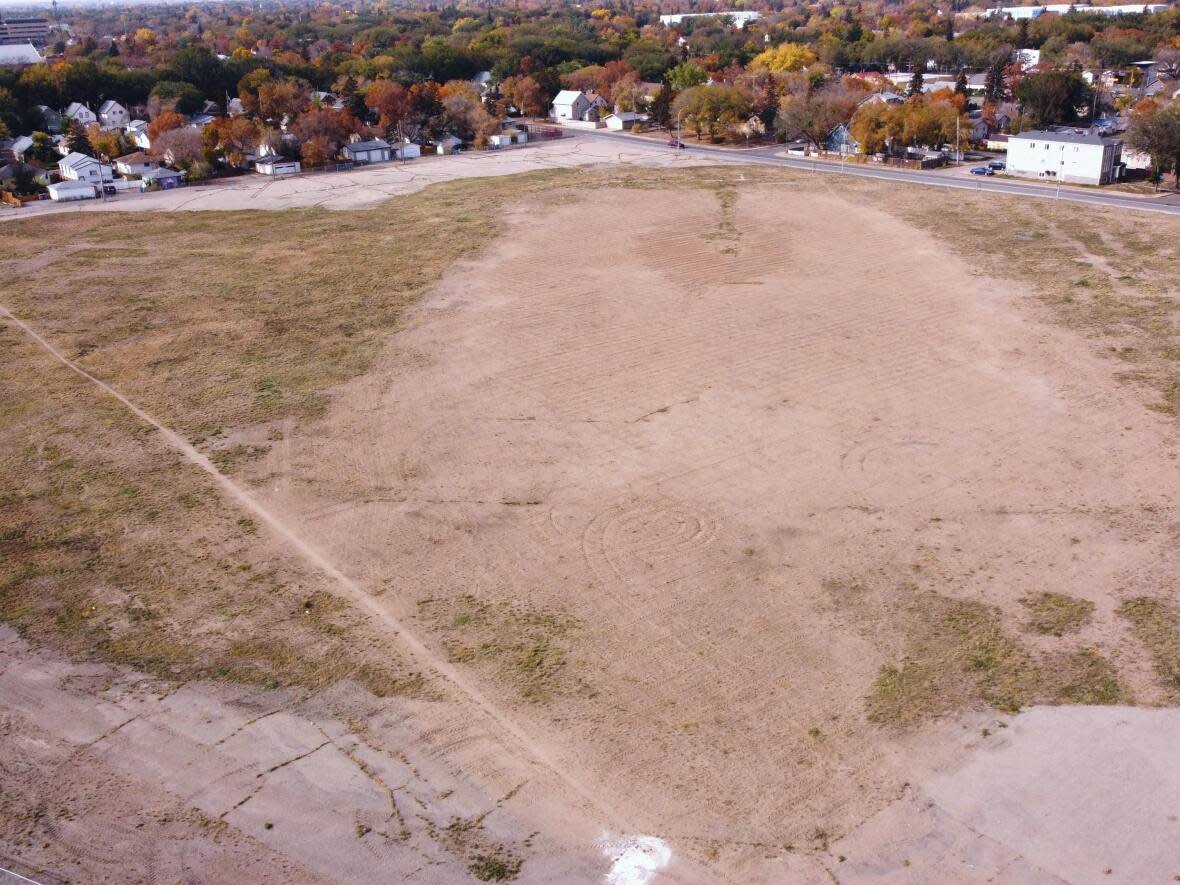Development at Taylor Field could soon begin as Regina approves series of infrastructure projects

More than five years after the former home of the Saskatchewan Roughriders was torn down, Regina has begun the process of preparing Taylor Field for development.
On Wednesday, city council unanimously approved the use of $9.5 million in funding from the provincial and federal governments for a series of infrastructure projects.
The vote means $1 million dollars is now earmarked for infrastructure upgrades at the Taylor Field site "to support housing development," according to a report prepared for city council.
"It's a little bit about just even the design on access and egress for surrounding roads and traffic flow. But I would think $1 million predominantly would be looking at the environmental circumstances of the land as well as what's underground for water and wastewater capacity," said Mayor Sandra Masters after the vote.
The 46 acres of real estate in Regina's North Central neighbourhood has remained an empty field since the former stadium was torn down on Oct. 17, 2017.
That was despite a plan for affordable housing being sold to the public as part of a vision to revitalize Regina's core.
Last year, Masters threw cold water on any commitment to affordable housing being built at the site, while the city had continued to explore a series of major projects that could find a home there.
WATCH | Will the old Taylor Field site ever be home to affordable housing?
Half of the $9.5 million in funding will come from the federal government and half will come from the provincial government, according to Masters.
"Honestly, it felt like Christmas. Not going to lie," she told media.
Part of the funding restrictions means the city cannot use it for operational expenses such as expanding the number of transit buses it operates in a day.
Instead, the funds must be used on infrastructure or capital projects.
Additional projects
Along with work at Taylor Field, four more infrastructure projects were approved by city council.
They include just over $4 million to cover the city's transit operating shortfall from 2019 to 2021.
That will allow the city to shift $3 million to begin work on a non-vehicular trail system that supports connectivity within the city centre and just over $1 million to support shovel-ready intensification projects
Council has also designated $400,000 for the installation and upgrading of transit shelters as well as the installation of concrete pads to improve accessibility.
A target of the city's Transit Master Plan is to have 338 of its 1,350 bus stops (25 per cent) be equipped with shelters.
Currently there are 273 transit shelters spread throughout the city, and the funding will allow for six additional shelters and the installation of 30 concrete pads.
Regina's YWCA will also receive support as part of the funding, with $1 million now earmarked for water and wastewater servicing at the new YWCA Centre for Women and Families located at Lucy Eley Park in the city's Cathedral neighbourhood.
Finally, the city will put $3 million toward a permanent, Indigenous-led emergency wellness centre.
The mayor would not disclose where the shelter would be located or which organization would lead the project. According to the report presented to council, however, a location has been identified.
Additional funding will be needed to renovate the space and support operational costs, Masters confirmed. She added that they are planning to get the shelter up and running this fall.
"I think we want to ensure that by at least August or September of this year we've got our hands on something that's in our control with the opportunity that if agreements haven't been worked out, at least we have a space for an emergency shelter over winter," Masters said.
City manager Niki Anderson confirmed that the city is required to submit its proposed list of projects to the province by Friday.
All projects must completed by the end of March 2024.


